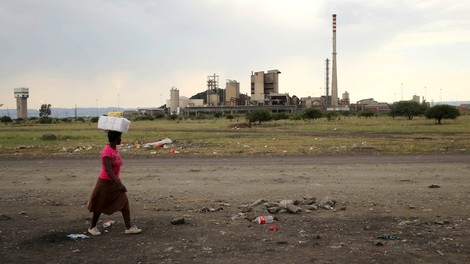Your podcast discovery platform
Curious minds select the most fascinating podcasts from around the world. Discover hand-piqd audio recommendations on your favorite topics.

piqer for: Boom and bust Global finds Globalization and politics
I am an anthropologist and political analyst interested in politics, economy and society in Africa and the West, from a global geopolitical perspective. I am a research fellow in the Department of Social Anthropology, University of Oslo, and a visiting researcher in the Centre for African Studies, University of Cape Town.
I have published widely in academic and professional publications and write regularly for international media such as Al Jazeera English, The Independent, Boston Review, openDemocracy and Africa Is A Country. I edit the Human Economy Blog.
Africa Is Rich. We Are Making It Poorer
We are used to the narrative that Africa is poor and Western countries are helping Africa solve its homemade problems with “generous” aid packages.
Honest Accounts 2017: How the world profits from Africa's wealth, a report released by several campaign groups, paints a different picture. In an Al Jazeera op-ed, Nick Dearden summarises its findings.
Contrary to popular perceptions, sub-Saharan Africa is a net creditor to the rest of the world by more than $41bn. While around $161bn comes in as loans, remittances and aid, $203bn leaves the continent each year.
Dodged taxes ($68bn) play a big role. There are also profits made in Africa by multinational corporations and repatriated in their home countries or elsewhere ($30bn).
Tax havens are a huge problem, and are often managed by Western banks and financial institutions. They allow multinational corporations and rich individuals from Africa and abroad to stash their wealth, at the expense of African states' budgets and public services.
About $29bn is stolen in illegal logging, fishing and wildlife trade. And $36bn is the cost of adaptation and mitigation measures to fight climate change, caused by rich economies outside of Africa.
Even the inflows have considerable costs. Loans to government and the private sector produce unsustainable debt, made speculatively and used to influence Africa's economic policies and its use of natural resources.
Cracking down on tax havens is crucial, but Western countries should also stop pushing African governments to privatise the economy and open their markets to unfair competition.
The author urges us to rethink the notion of aid as uncontroversially good. We should be talking instead about reparations for the damage done, to put an end to the looting of Africa and redistribute its wealth to African citizens.
We need to change the way we think about Africa:
"We are not, currently, 'helping' Africa. Africa is rich. Let’s stop making it poorer."
